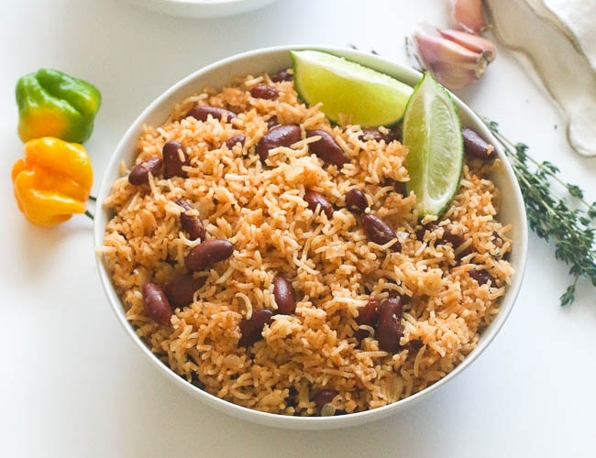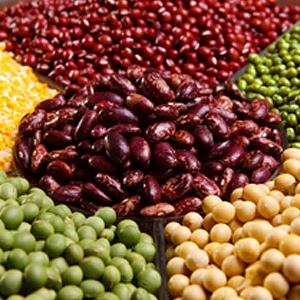A plant-based diet has been widely touted as the way to go, both to save the environment and to solve the food security challenges of the future. But many folks have not been able to make the switch due to an extreme reaction to the leading source of Plant Protein: Legumes…
 Rice and Red Beans: A keystone dish in the traditional Plant-Based Diet.
Rice and Red Beans: A keystone dish in the traditional Plant-Based Diet.
If you didn’t know already, Legumes constitute a large family of extremely nutritious foods, including Lentils, Peas, and most types of Beans. When served with Grains, they offer a complete protein for human nutrition. No Meat required. The best example of a Plant-based dish is the ubiquitous combination of Rice and Beans. But there are many other ways to enjoy Legumes and get all the nutrients you need to support good health. Just Google: ‘vegetarian legume recipes’.
Not an easy choice for some
Alas, some folks have a hard time digesting Legumes due to a sensitivity to compounds, called FODMAPs for short, that can cause diarrhea and/or constipation, bloating, gas and abdominal pain. It’s estimated that as much as 20 percent of people the world over are sensitive to FODMAPs and, as a result, avoid these otherwise healthy, good sources of Fibre, nutrients and Vegetable proteins.
Now Scandinavian researchers have discovered a way to break down FODMAPs in Legumes to produce more stomach-friendly Plant-Based foods.
What they did
A team at the VTT Technical Research Centre of Finland teamed with food companies that have a stake in the goal of reducing FODMAPs in Plant-Based foods to look for a solution to the problem.
“We investigated whether these compounds can be removed from food by breaking them down with enzymes. We utilised both commercial enzymes and ones produced at VTT in the project. We used them to test the removal of FODMAPs from Faba Bean and Pea Protein concentrates as well as from Rye, Graham and Wheat Flour,” said Senior Researcher Dr. Antti Nyyssölä.
What they found
The enzyme treatments were found to be highly effective in denaturing FODMAPs: only small amounts of FODMAPs remained in the raw Plant materials after enzymatic treatment.
“The method is similar to that used to make [Lactose free] milk, in which lactose is broken down in advance. Similarly, enzymatic treatment can be used to remove FODMAPs from food,” Nyyssölä explained.
The takeaway
“The study showed that enzymes also work under a variety of conditions and in different food processes. This is interesting new information especially for legumes, as there are currently no similar legume-based foods suitable for the FODMAP diet on the market,” says Nyyssölä. “The results are most likely to be utilised next in the development of new food items, but also in academic research in order to verify the effects on intestinal symptoms with certainty.”
My take
This could be a very important development in the forced march we all have to take toward a much-less-meaty future. If everyone can enjoy Plant-Based Proteins, a huge roadblock to the adoption of the Plant-Based diet we must al undertake to ensure food security and a cleaner world into the future.
~ Maggie J.

